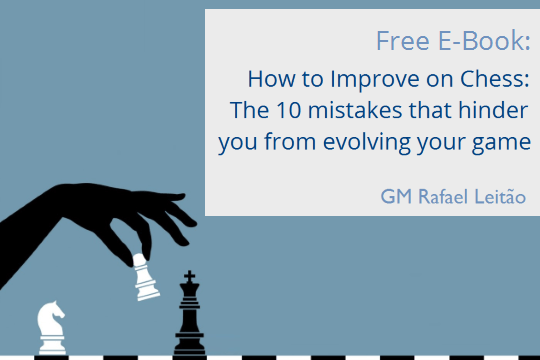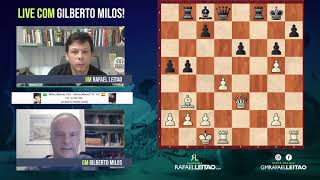The importance of analyzing your chess games
The deep analysis of your own chess games is considered the most vital task to develop your play. Naturally, training consists of calculation and strategy exercises plus other activities, but only a keen observation of your own experience will make you realize your mistakes and take the necessary measures to improve your chess play.
How to analyze your chess games
Through our Monitored Training, we focus in a detailed study of the last tournament games played by the student. In this article, I’ll give some tips for you to get the best results from it.
Step 1:
Write down all the variations you studied during the game. Highlight your thinking process for each one of the critical decisions that you needed to make. This is an advantage you gain from analyzing your recent games, since they are still “fresh” in your memory. It will give you and your coach the necessary elements to evaluate in your game.
Step 2:
Analyze with a computer and try to find the “truth” about the game. In general, it’s not recommended to analyze too much with a computer; but, if you’re analyzing your own games, you can treat this as an exception to this rule. After all, you have already done a great amount of time thinking and dealing with a lot of emotions while playing chess.
The great disadvantage of turning the computer on is forgetting to put your brain to work – something impossible when you’re analyzing a game you already played. So, the key is trying to understand the game as a whole, especially the tactical positions. Avoid superficial variations, try to evaluate the candidate moves for each side of the board, and take time the necessary to achieve good conclusions.
Download Now Our Free E-Book!
Step 3:
Write down a complete evaluation after ALL the variations – you have to get used to make conclusions (or, at least, try to do it). If you have any doubts about your evaluation, make this as clear as possible in your annotations.
Step 4:
Indicate a conclusion in the end of each game. What did you think about your decisions? And your opponent’s game? What were your major imprecisions? Do you think you played the opening well? Personally, I state a clear conclusion at the end of each game analysis. By doing this, you are able to build a game report, list all your miscalculations and compare games from different tournaments, checking if you are still making the same mistakes.
Get the free 3 hour course “How To Crush Super GMs In Blitz” with GM Maxim Dlugy!
Step 5 (applicable if you have a coach):
Send the analyses to your coach and wait for their feedback, plus some new analytical tasks.
Did you like these tips? So, you definitely should check our Monitored Training system!
Ready to begin analyzing your games? Good luck and study well!
Written by Rafael Leitão on January 30th, 2017
Follow as in the social media!







Sir, I heard that you are having a YouTube channel in the name of unacdemy global chess. You and your team are doing a great job by giving free live session that's a grat work but can you make a live video on how to anlyze your own chess games and how to anlyze master games and improve your self.